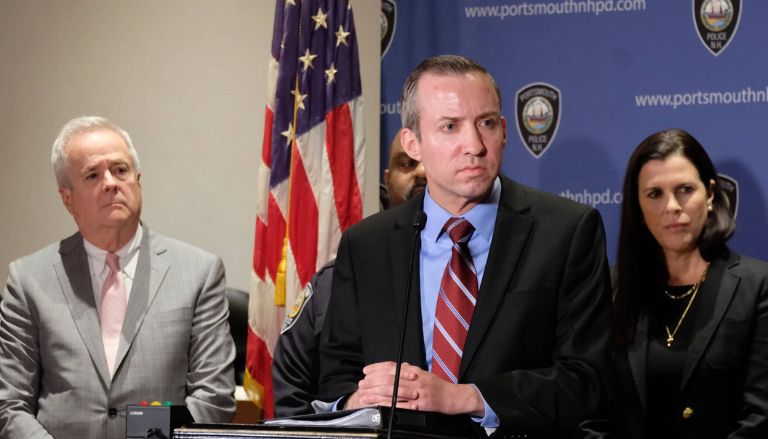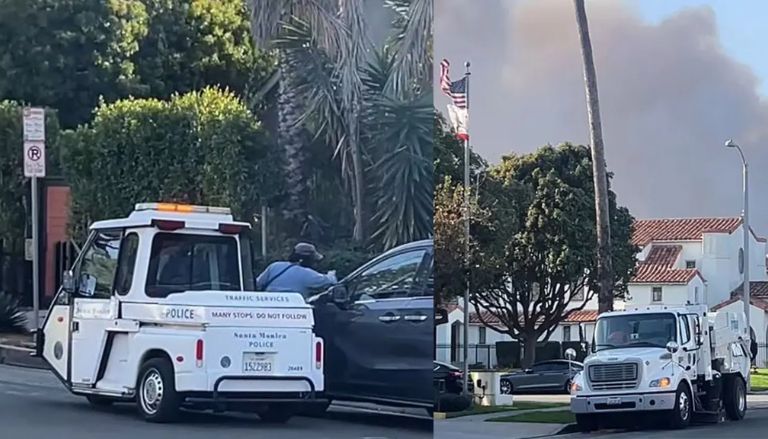The New Hampshire Supreme Court said that NSC-13, a local white nationalist group, did not break the state’s Civil Rights Act when they put up a banner that said “KEEP NEW ENGLAND WHITE” on an overpass.
The state sued the group’s leaders under the Civil Rights Act, but the court threw out the case in a 4-0 ruling released Friday. The state went too far when it applied the civil rights law, according to Chief Justice Gordon MacDonald’s writing. He said that it violated the activists’ right to free speech.
“Because the State’s interpretation of the Act is too broad, there is an unacceptable risk that it will chill speech protected by Part I, Article 22 of our State Constitution,” MacDonald wrote.
Ten people from NSC-13 hung the sign from the overpass in July 2022, which is what led to the case. They were stopped by police in Portsmouth, who told them that hanging flags from overpasses without a permit was against the law. After being told to do so, they took down the sign and left the bridge within 25 minutes.
The AG’s office tried to sue the NSC-13 members under RSA 354-B:1, a part of the state’s Civil Rights Act that protects people from “actual or threatened damage to or trespass on property when such actual or threatened conduct is motivated by race, color, religion, national origin, ancestry, sexual orientation, sex, gender identity, or disability.”
The state said that the activists were breaking the law because they were trespassing on a public road to put up the sign and did it because of their race. But the defendants said that was not how the law should be read, and the American Civil Liberties Union of New Hampshire helped them with their court case.
Judge David Ruoff of Rockingham Superior Court agreed with the group and said that the state’s plan to use the anti-trespassing language was too broad and went against the free speech rights in the state constitution.
MacDonald agreed with that decision. Part of the Civil Rights Act was narrowed by the Supreme Court’s decision. Going forward, the state will have to prove that defendants knew they were breaking an anti-trespassing rule before they can be punished for trespassing under the act.
If someone breaks the law by actually trespassing on someone else’s property, the State has to prove that the person knew they weren’t supposed to be there and either broke the law themselves or got someone else to break the law. They also have to prove that the trespass was “motivated by race, color, religion, national origin, ancestry, sexual orientation, sex, gender identity, or disability.”
The state said those conditions were met because the NSC-13 members were wearing masks and wouldn’t identify themselves to police, which showed they knew they were breaking the law. But MacDonald didn’t agree with that point of view.
There were three associate justices who signed the decision: James Bassett, Melissa Countway, and Patrick Donovan. Justice Anna Barbara Hantz Marconi is not working at the court because she is being charged with a felony for allegedly interfering improperly with a probe into her husband, Geno Marconi.







Leave a Comment